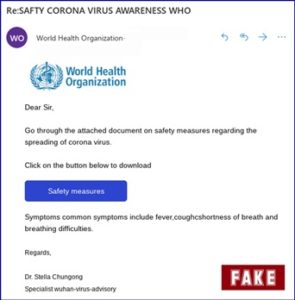Sanction Scanner pointed out that the fight against money laundering and financing of terrorism should continue during the crisis caused by the COVID-19 pandemic.
Fatih Coşkun, founder of Sanction Scanner:
“We are going through very difficult days all over the world. It is our greatest wish that everything will return to normal quickly. For malevolent people, this type of crisis times is a blessing. Financial crimes can increase with coronavirus. When we examine the reports on attacks such as money laundering, counterfeiting and phishing, these crime transactions have increased recently by using communication methods on coronavirus. We warn financial institutions for situations where we share a few examples below and invite them to take action to avoid damage in this panic atmosphere. ”
Unlawful Money Carriers may Appear
Unfortunately, complicated situations like crisis times can force people into abnormal financial behavior. The existence of criminal businesses targeting individuals with bank accounts and using their financial backgrounds for money management and money laundering is known. Generally, criminals offer a certain fee to individuals for the use of personal bank accounts and money transfers from these accounts to their desired accounts. The victims of these types of transactions are often people who need extra money. However, the recent increase in the number of unemployment in all countries of the world makes it imperative to pay special attention to this issue. Money mules are crime and carry the risk of criminal prosecution and long prison sentences.
Potential Frauds Risks that Can Occur For Enterprises
Criminals target not only individuals but also businesses for fraud. We are witnessing economic support packages created by governments to reduce the negative effects of the crisis caused by the Corona virus. There are likely to be criminals who would like to access these support packages for fraud. Therefore, compliance officers have to carefully manage the process and detect fraud risks. Financial institutions should continue their controls to ensure that these support packages reach the right people and businesses in order to prevent the negative effects of the crisis from growing further.
Fraud Increases Rapidly in Crisis
Fraud is one of the financial crimes that are relatively easy to detect with its support in technology.
Fraud can generally be divided into the following three categories:
- Phishing and social engineering scams
- Selling fake or counterfeit goods
- Incorrect informations
While COVID-19 poses significant global health and safety risks for individuals and organizations around the world, cybercrime and fraud activities. This global pandemic can lead to massive financial damage and it can put additional challenges on anti-virus efforts. Criminals are creative enough to develop financial crime development techniques. To ensure that financial crime detection strategies are always fit for purpose, firms need to stay vigilant and they should be one step ahead of the criminals.

A phishing scam that mimics WHO (Source: Sophos)
Market Behavior Can Create Opportunities for Criminals
With the coronavirus epidemic, which shows its effect all over the world, people rush to the markets and take food and cleaning agents and emptied the shelves. With the increasing demand for products, we follow the news that the products are stocked by wholesalers and attempted to be sold at high prices on the black market. With the panic caused by the epidemic, the products that people buy at exorbitant prices facilitate the profiteering processes. Governments tighten their control to protect consumers from profiteering and stocking. Regulatory agencies are punished with heavy penalties for businesses engaged in stockpiling and profiteering. We, as consumers, should not be able to provide get unearned income to those who make profiteering from the crisis.























